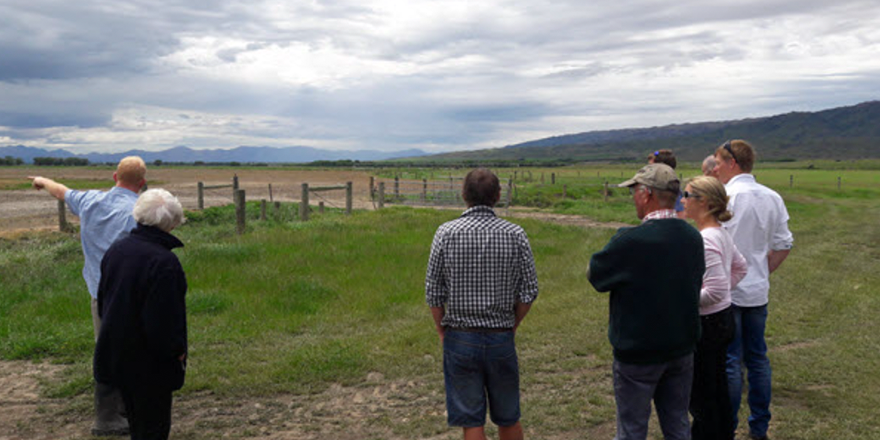
Executive Summary
In today’s society there remains a stigma around money and finances, possibly originating from a fear and lack of understanding, and historically this has been thought to have hindered farmers’ ability and willingness to take control of their farming operations without understanding what the figures mean for their business.
In an ever-changing world of requirements for freshwater management, biodiversity and climate change policy changes, biosecurity threats, volatile markets due to societal trends and economic fluctuations – a profitable business and a solid balance sheet is crucial in today’s farming operations in order to be prepared for anything. Due to the numerous industry pressures that farmers are faced with, it is important to have a solid foundation of financial literacy and business management skills to complement the practical, industry specific skills in the Food and Fibre industry in order to run a profitable farming business.
Financial literacy generally is weak for many farmers (Speight, 2018), therefore financial literacy is a crucial element in farmer training in order to pave the way for increases in productivity, income and profitability and improved livelihoods (Musungwini, 2018). The benefits of this financial knowledge and improved livelihoods will overflow into our rural communities, leading to improved mental health in our farmers and collectively contributing to a positive future for generations to come.
Farmers running their day to day farming operations, most being defined as ‘small sized businesses’ in NZ, should be running their farming operations as a ‘business’ and farmers should be treated like business owners. This means structuring farming operations like a business, with a Trusted Team around them for support and guidance, coupled with being highly skilled in areas across the board in finance and business management. This will allow farming operations to effectively plan for the future, striving to meet performance goals and being in a position to make well informed decisions at any point in time.
With the aim of helping farmers by steering them in the right direction on their journey of improving their financial and business management capabilities, this report identifies the specific areas that require focus in order for farmers to competently and confidently run their farming operations like a business. It is essential that the farming operation and farmer’s benefit is front of mind throughout the up-skilling process as this will allow control of the business operations and finances back in the farmer’s hands which will hopefully be met with willingness and curiosity from the farmer.
The benefits and value of the farmer taking control over the finances will be a turning point in the industry and confidence will be gained by the farmers to harness their new skills and take the reins of the direction of their farming operations into the future. It is evident there are a number of barriers to farmers’ willingness and ability to up-skill in their financial and business management skills. These are; cost, lack of time, resistance to change and failing to see the value benefit of what these skills could create for them and their farming business. The overarching theme within the suggested approach to improve farmers’ financial and business management capability is the need to navigate potential barriers mindfully and tailor individual farmer’s needs specifically to each farmer. This will assist in broadening their knowledge and transitioning the control over the finances with guidance and support throughout, understanding that every farmer is different.
Through an analysis of data gathered from farmers in the field, from rural advisors in the industry and by carrying out a literature review across four main topics, it is evident there is definite room for improvement to raise the financial know-how of farmers in New Zealand. The positive impact of an improvement in this area will be key, to ensure the NZ Food and Fibre industry keeps up with changing demands and for farmers to be in a position with the skills and control to make informed decisions. This will allow farmers to ride the highs and endure the lows for many generations to come. It is evident that there are already steps being made in the right direction which has lead to an increase in knowledge over the past ten years, but there is an urgent need for this to continually improve given the uncertain times we find ourselves in, in a post Covid-19 world.
It is time to break down the stigma around finances and tap into farmers’ financial and business capabilities. Research shows there is a large web of resources available already, for example the Dairy NZ website, the Beef & Lamb NZ website and the work that the Agri-Womens Development Trust (AWDT) is doing, for example facilitating the Understanding Your Farming Business (UYFB) course for farming women. There is a need to bring out farmers’ willingness and curiosity to learn and take control of their business, which when combined with adequate and relevant training via tutors or mentors will result in a higher level of knowledge across the board. The outcome will be improved confidence in our farm operators and farmers will witness first-hand the value and reap the benefits of what having strong financial and business management skills and control over their financials could create for them.
A recommendation that would hugely benefit farmers is introducing an on-farm tutor or mentor initiative to boost confidence in their financial and business capability by educating farmers step by step through what they can do to be involved in their financial and business management. When farmers are confident in completing financial tasks efficiently themselves, using suitable farm finance software and with adequate training, they will gain control over the financials and be better poised to influence and execute effective business planning and strategic discussions. This entire package will be crucial for farmers to be up to speed at any point in time, with the knowledge to make informed decisions, the skills to implement these with a supportive and trusted team behind them and the confidence to put their best foot forward when seeking finance for business growth.
